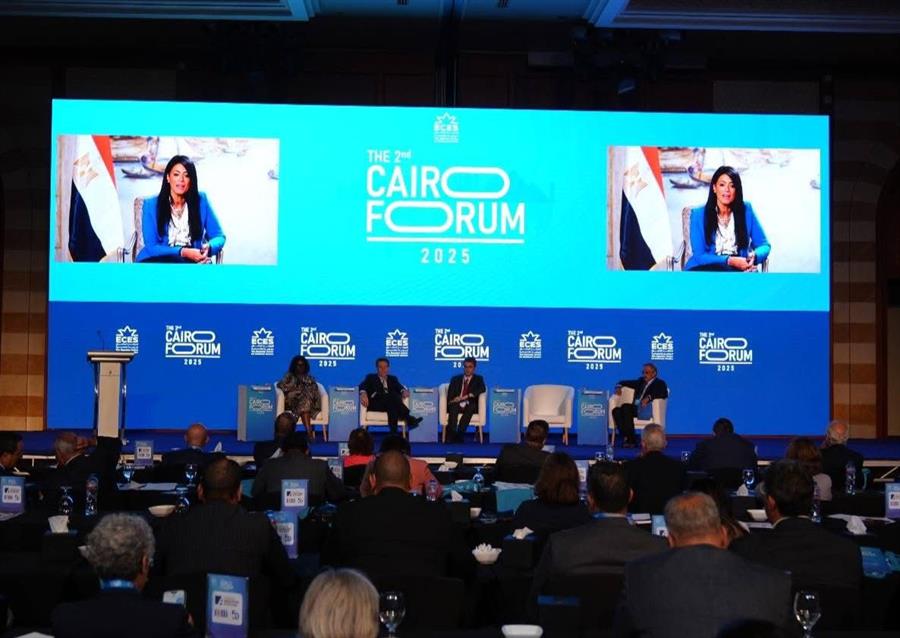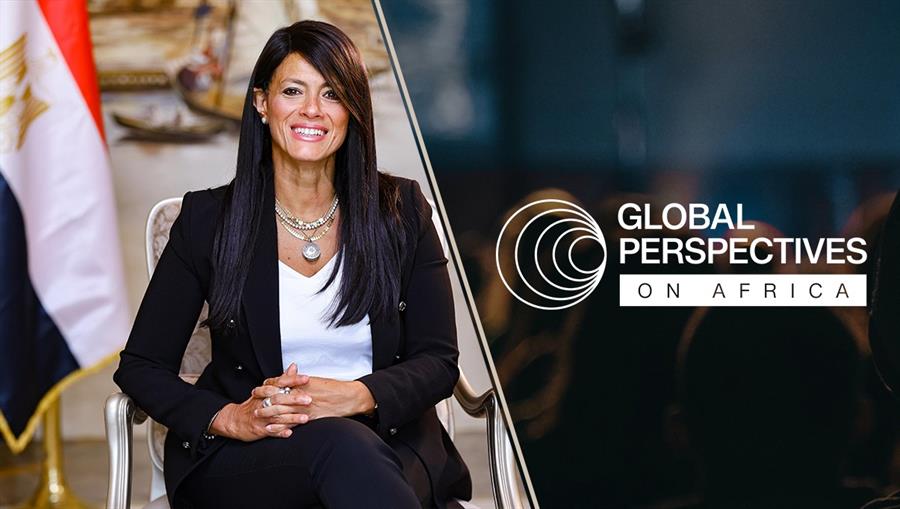During her participation in a high-level session for CNN International in London on “Economic Transformations across the African Continent”
04 November 2025
Dr. Rania Al-Mashat:
The African continent stands at a pivotal moment in light of global geopolitical and economic transformations.
Economic diversification is a key factor to unleash Africa's inherent potential. Maximizing the continent's role in the global economy requires developmental and investment partnerships based on mutual interests.
Leveraging the African Continental Free Trade Agreement (AfCFTA) creates an economic power and advances the continent's contribution to global value chains.
The global financial system must be reformed to allow for fair financing and support countries' ability to boost economic growth.
Egypt believes in the necessity of regional integration and multilateral cooperation to achieve common development.
H.E. Dr. Rania Al-Mashat, Minister of Planning and Economic
Development and International Cooperation, participated in a high-level
discussion session addressing the shifts in economic conditions in the African
continent, as part of the CNN International events in the British capital,
London. Participants included Ambassador Javier Niño Pérez, Head of the
European Union Delegation to the African Union, and Ms. Zain Asher, CNN
International anchor.
During her participation, the Minister of Planning, Economic
Development and International Cooperation emphasized that the African continent
today stands at a pivotal moment in light of global geopolitical and economic
transformations, as it possesses about 30% of the world's mineral wealth and
enjoys a central strategic location connecting the three continents, which
enhances its capacity to become a major hub for global trade and supply chains.
Dr. Rania Al-Mashat added that Africa's vast potential
necessitates amplifying its role in the global economy through developmental
and investment partnerships that achieve mutual benefit. The Minister
highlighted the evolution of economic relations between Africa and its
international partners in recent years.
Dr. Al-Mashat reaffirmed that the African continent
possesses the essential components for achieving regional economic integration
through the African Continental Free Trade Agreement (AfCFTA), which paves the
way for one of the world's largest commercial markets, comprising more than 1.4
billion people. This agreement represents a fundamental pillar for boosting
investments and joint industrialization, and building an African economic power
capable of achieving real added value in the global economy.
In a related context, Dr. Al-Mashat stressed that financing
challenges still exist in many African countries due to high borrowing costs,
which affects investment capacity and hinders the implementation of vital
projects in health, education, and infrastructure.
Minister Al-Mashat noted that many countries on the
continent spend a large percentage of their revenues on debt servicing,
reflecting a genuine gap that requires a reform of the global financial system
to ensure just financing and support the ability of developing countries to
foster economic growth and achieve Sustainable Development Goals (SDGs).
The Minister reviewed Egypt's experience in mobilizing
finance and maximizing private sector participation through innovative
partnerships with international institutions, based on clarity, transparency,
and national ownership, rather than merely a lender-borrower relationship.
Consequently, Egypt has succeeded in formulating and
implementing vital development projects in recent years. International
institutions have also made available about $16 billion for the private sector
in Egypt, and the country platform of "NWFE" Program has become a
model for global climate investment mobilization platforms, given its capacity
to create partnerships between various financing institutions and international
partners to encourage green investments in Egypt.
In a related context, the Minister indicated that Egypt is
currently working to continue the path of economic reform through “Egypt’s
Narrative for Economic Development” which reflects Egypt's vision for
transitioning to a private sector-led growth model linked to exportable
sectors. This is being achieved by improving the investment environment and
directing public investments to support projects that enhance competitiveness
and achieve sustainable and inclusive growth.
Dr. Al-Mashat also mentioned Egypt's vision for
strengthening cross-regional alliances through the development of strategic
partnerships between Africa and its partners in Europe and the Gulf, based on
Egypt's geo-economic position as a gateway connecting the North and the South.
She stressed that developing sustainable trade corridors and financing clean
energy and green industrialization projects would contribute to pushing the
continent toward a new phase of growth.
Dr. Al-Mashat pointed out that achieving just and
sustainable growth is now contingent upon building economic alliances capable
of expanding the volume of investments and enhancing economic integration
between countries. She noted that Africa possesses the necessary components to
place it at the heart of global economic transformations, and that Egypt
continues to work with its international partners to create a more inclusive
and sustainable development environment across the continent.
The conference, organized by CNN International, is held with
the participation of a selection of senior government officials and
international organizations, including Dr. Ngozi Okonjo-Iweala,
Director-General of the World Trade Organization (WTO), Ambassador Javier Niño
Pérez, EU Ambassador to the African Union, and Ms. Nadia Calviño, President of
the European Investment Bank (EIB), along with a number of prominent
international figures.









